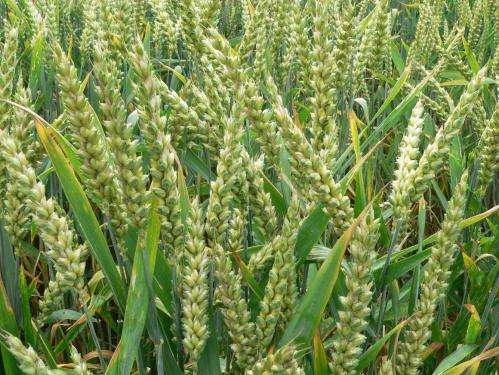Climate change to result in tasteless, poor-quality food

Appetite for Change, a report prepared by leading climate scientists David Karoly and Richard Eckard at the University of Melbourne, reveals the impact that shifting rainfall patterns, extreme weather, warming oceans, and climate-related diseases will have on the production, quality and cost of Australia's food in the future.
Tasteless carrots, bad pizza dough and poor quality steak are some of the impacts we can expect from Australia's changing climate, according to the new scientific report released today to mark the launch of this year's Earth Hour.
From wheat, seafood and dairy products to poultry, meat, grains, and fruit and vegetables, the effects of global warming on a list of fifty-five household food items has been compiled for the very first time.
"It's definitely a wake up call when you hear that the toast and raspberry jam you have for breakfast, for example, might not be as readily available in 50 years time," said Associate Professor Richard Eckard from the University of Melbourne.
"Or that there may be changes to the cost and taste of food items we love and take for granted like avocado and vegemite, spaghetti bolognaise and even beer, wine and chocolate.
"It makes you appreciate that global warming is not a distant phenomenon but a very real occurrence that is already affecting the things we enjoy in our everyday lives, including the most common of foods we eat for breakfast, lunch and dinner, " he said.
Professor David Karoly, co-author of the report, said that out of all the impacts global warming is having on Australian farms, increases in heat-waves and bushfires pose the biggest threat to Australia's agricultural regions.
"Global warming is increasing the frequency and intensity of heatwaves and bushfires affecting farms across southern and eastern Australia, and this will get much worse in the future if we don't act.
"It's a daunting thought when you consider that Australian farms produce 93% of the food we eat," he said.
Key findings of the report reveal that:
- Dairy foods are likely to be affected by warmer temperatures and more heat waves, as heat stress on dairy cows typically reduces milk yield by 10-25 per cent, and by up to 40 per cent in extreme heat wave conditions.
- A warmer and drier climate will pose significant challenges to beef production systems in southern Australia. Southern pasture growing seasons are expected to contract, while increased heat stress may lead farmers to choose more heat tolerant cattle breeds possibly of lower meat-eating
- quality.
- Warmer temperatures adversely affect the flavour of carrots, as well as their texture and physical structure. Higher temperatures associated with climate change are likely to make carrot production less viable in warmer areas with shifts to cooler regions such as Tasmania.
- Extremely hot weather can reduce the quality of bee honey and has other flow-on effects such as reduced pollination for fruit trees.
- Higher temperatures and humidity can cause "late blight" in potatoes, which rots the tubers and makes them inedible.
- Chickens are sensitive to heat stress, which will affect the quality of their meat. Increased droughts around the world are also leading to more volatility in the price of grain used to feed chicken.
- Temperatures above 27°C will potentially cause bolting (prematurely running to seed) and poor colouring in beetroots.
- Climate change is likely to reduce reliable rainfall and place pressure on water availability in Australia's current major rice-growing regions.
- Rainfall and temperature changes will affect wheat growth, with lower and more variable production forecasted. The zinc and iron concentrations of Australian wheat are projected to be 5-10 per cent lower by the middle of the century, adding to pressures associated with malnutrition.
- Climate change is acidifying our coastal waters making it harder for shellfish to build their shells.
- Fruit trees and nuts in southern Australia will not get cold enough in winter to signal fruit development.
Discover the latest in science, tech, and space with over 100,000 subscribers who rely on Phys.org for daily insights. Sign up for our free newsletter and get updates on breakthroughs, innovations, and research that matter—daily or weekly.
Anna Rose, National Manager of Earth Hour Australia and 2015 Australian Geographic Society Conservationist of the Year said the report highlighted the vulnerability of Australian farmers and the food they produce.
"Aussies are proud of our farmers for feeding the nation but they are on the frontline of global warming and are already feeling the effects of rising temperatures and more extreme weather," she said.
"That's why as part of Earth Hour on Saturday, March 28, millions of Australians will switch off their lights at 8:30pm to show their support for stronger action on global warming and for the future of Aussie food and farming.
"If we don't tackle this issue head on and make the move to renewable energy while committing to a stronger target to cut carbon pollution, Australia is on track to import more fruit and vegetables than we export by the end of the century.
"This will result in higher food prices and poorer food quality, undermining our farmers' livelihoods and the viability of our rural communities."
More information: The report is available online: www.sustainable.unimelb.edu.au/planettoplate
Provided by University of Melbourne



















